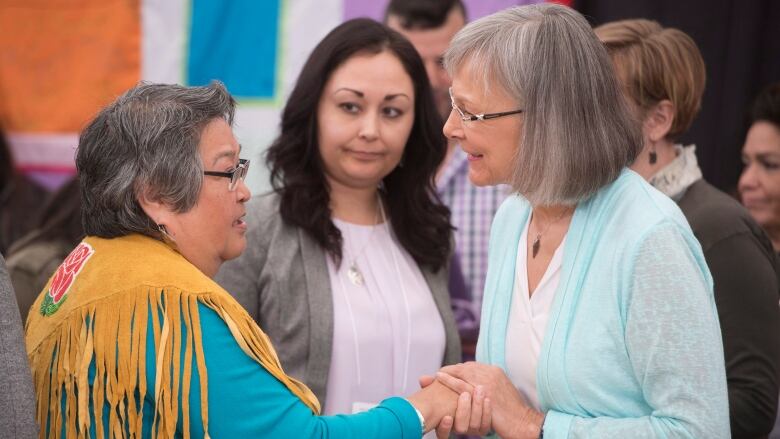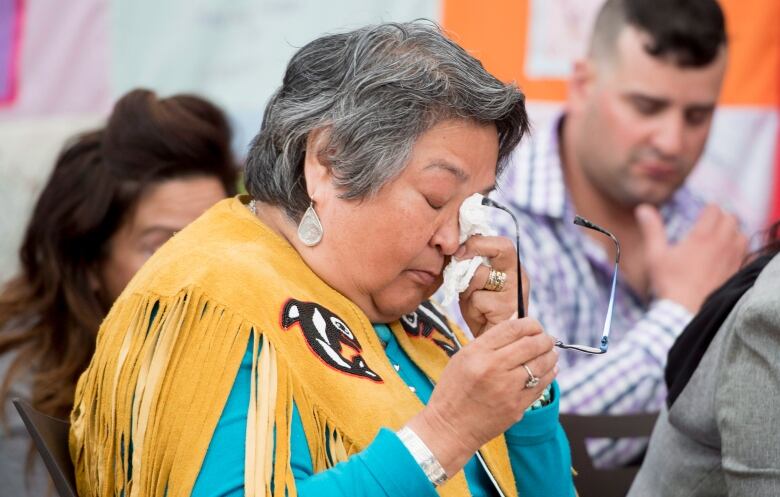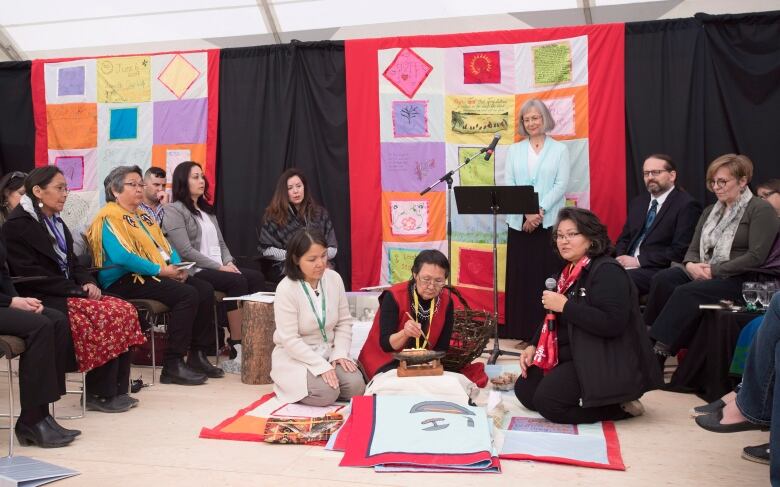'Sorrowful but essential': 1st families speak at MMIWG hearings in Whitehorse
Hearings run in Whitehorse until Thursday

The long-awaited first public hearings for the National Inquiry into Missing and Murdered Indigenous Women and Girls got underway in Whitehorse Monday, under a tent on the banks of the Yukon River.
The five commissioners of the inquiry started the hearings, which run until Thursday, seated in a semi-circle in an enclosed section of the tent the walls lined with quilts sewn by volunteers in Saskatoon.
"Today is turning point in our national history," said Marion Buller, the inquiry's chief commissioner. "This is a sorrowful but essential part of our history,"
"There's going to be a lot of tears flowing in this process," said commissioner Marilyn Poitras.
'To give voice'
The first family to speak to the commissioners was that of Mary Johns, a Yukon woman who was found dead in Vancouver in 1982 a victim of Gilbert Paul Jordan, the so-called Boozing Barber.

She also had a message for the commissioners.
"We must stand up for justice for these women that have walked before us," Neumann said. "To give voice that was taken away, so unjustly."
Criticism
Leading up to these public hearings, the inquiry had been under intense scrutiny, with many calling it disorganized and with poor communication.
#MMIWG Why r the processes legal (swearing in & entering exhibits) when the outcome is not legally binding?
—@Joan_JackLorelei Williams, an advocate whose aunt, Belinda Williams, went missing from Vancouver'sDowntown Eastside 40 years ago, was initiallycritical of the inquiry,but has recently had a change of heart.
"Actually being here in Whitehorse and witnessing this, I'm realizing, OKa lot of work is being done but it was the lack of communication that was making families upset and I'm starting to understand more, being up here," she told CBC News.
Hearings run until Thursday
Around a dozen families have already registered to speak at the hearings, though the commission is expecting to speak to many more.

Those who don't want to speak publicly can meet with commissioners one-on-one in small cabins located beside the main hearing tent. There is also an option for people to give testimony over the phone, commission staff said.
This is the last time families can give testimony to the commission until the fall.












_(720p).jpg)


 OFFICIAL HD MUSIC VIDEO.jpg)
.jpg)



























































































